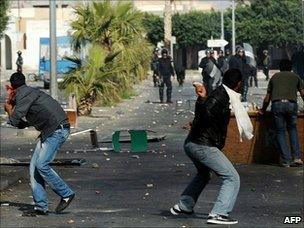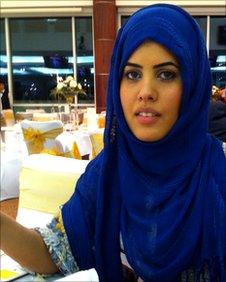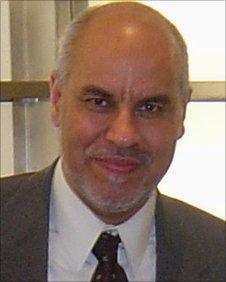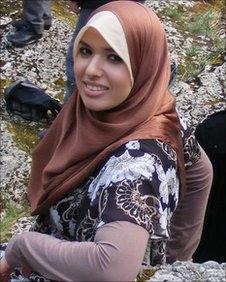Reaction to violence in Tunisia and Algeria
- Published

Demonstrators have repeatedly clashed with police in both countries in recent days
North African neighbours Algeria and Tunisia have both seen widespread rioting and fatal clashes with police in recent days.
The Tunisian government has imposed a night-time curfew in the capital, Tunis, after violent protests in several districts of the capital killed 23 people, according to officials, while human rights groups say at least 50 have died.
Meanwhile, two people were killed in riots linked to food price increases and unemployment in Algeria.
Here, Tunisians and an Algerian, who spoke to the BBC News website and BBCArabic.com, react to the current unrest in their countries and discuss how closely the causes of clashes in the two countries are linked.
Ghaieth, Nabul, Tunisia
Last night friends of mine who were out protesting witnessed civilian people being shot shot dead, simply because they were protesting. Even people watching them from roof tops were shot at.
I haven't been out to protest myself - it's too dangerous. It's best to stay at home. The army is absolutely everywhere.
Today I went to the centre of the city. It was all burnt - the banks, the police station, every government building was burnt.
The government is manipulating us. Tunisian media is under total government control - they show nothing at all. But we are sharing videos through Facebook and that's how we can see what is really going on.
It's very difficult accessing the internet at the moment. I tried to contact an American friend via Skype, but the internet wasn't good enough and viewing those videos online is a challenge.
I am a student, but I can't go to university. Universities and schools are closed indefinitely. I feel truly upset. People are dying, it's not safe here anymore, this is not the country that I know.
The government is manipulating us, the only resolution is complete change.
Amel Gaaloul, Tunis, Tunisia
With the curfew imposed on Wednesday, the streets were empty very early here.
There is a weird atmosphere, as people are scared but also relieved and excited, as we believe that change is finally happening.
Apart from the problems with unemployment, people are just fed up with not being able to communicate freely or express themselves.
Lost of people are becoming involved by sharing videos on the internet of the protests and violence. But information has been really difficult to access.
For those lucky ones who have access to the internet, Twitter and Facebook are the only ways to keep track of what's going on in the country.
Apparently many false profiles have been created and are spreading false rumours, contributing to a general paranoia among internet users here.
I'm staying at a friend's tonight as I don't want to be alone.
Friends of mine were beaten by police on Tuesday night as they were calmly walking nearby one of the peaceful protests.
Others were taking part in a peaceful demonstration in front of the national theatre and were badly beaten because they wouldn't move.
But people here feel that we can't go back to the situation we had before. We've gone too far now and we just can't take it any more. Those who died cannot be allowed to have died for nothing.
Kouther Ferjani, Tunisian post-graduate student in London, UK

A number of factors led to the violent eruptions in Tunisia.
These include high youth unemployment and claims of alleged corruption made public by Wikileaks.
These leaks came at a time when many young people endure a desperate existence.
In my opinion, the region's governments will try to calm things down, for a short while at least, before the status quo returns.
The Tunisian regime may even contemplate installing a new president, but from the same entourage that surrounds the current ruler.
The solution in the long term is changing the political system altogether.
Mohamed Zorig, Tunisian in Canada, general secretary of Al-Maghreb Al-Arabi human rights association
We face a very difficult situation in Tunisia.
It is no exaggeration to say that we are witnessing an uprising against injustice, corruption and brutality.
The regime responded to the recent demonstrations by using live ammunition against demonstrators, killing many.

This is a crime against humanity.
What is happening is also a refection of the regime's inability to respond to popular demands.
This because the state's finances are controlled by a small group of people, leaving the vast majority of young people struggling to make ends meet.
What young people are asking for is very basic: jobs. But the people of Tunisia realise that no improvement in living standards is possible without a change in the political landscape, and that is why they have used the slogan "bread, freedom, dignity".
We don't want the West to send us another Hamid Karzai as leader.
We need the West to support the legitimate demands of the demonstrators.
Suliman Bahmani, unemployed university graduate, Algeria
The decision of the Algerian government to increase food prices coincided with the demonstrations in Tunisia.
I have no doubt that the unrest in Tunisia encouraged young people in Algeria to take to the streets to demand their rights.
The government here made a mistake when it increased the price of flour, sugar and cooking oil.
These are basic foodstuffs. It is why the government here retreated soon after the demonstrators took to the streets.
The problem in Algeria is that it is not just the government that controls the price of food. There are individual barons who play a role too. It is essential that such monopolies are tackled.
The situation in Algeria is better than the one in Tunisia. The Algerian government has huge resources because of gas and oil exports.
Tunisia, by contrast, relies on the tourism sector to provide employment for young people. That is why the crisis is deeper in Tunisia.
Intisar Kahreji, Tunisian human rights lawyer based in the UK

There is profound oppression in Tunisia.
My family had to flee the country because of my father's opposition to the regime.
This oppression, together with high youth unemployment - which led one young man to commit suicide recently - and corruption have created a sense of despair amongst young people.
A small minority of people live in villas and palaces, while the rest endure a harsh life.
It is meaningless to talk about helping young people or working to improve their conditions because quite simply the state's resources are monopolised by a small clique. The economic growth that Tunisia enjoyed over recent years benefited this small circle.
Had the suppression of the demonstrators we see now in Tunisia occurred in, say, Iran or China, Europe would have made a major issue of it.
However, the reaction of the EU, Tunisia's biggest commercial partner, has been very weak.
Indeed, the EU did not even issue a response until three weeks after the start of the unrest.
Our message to the Tunisian government is that the status quo cannot continue and that real political reform is necessary.
Current events also carry a message to the EU: you must put pressure on Tunisia to reform and that the EU's policy of supporting leaders for the sake of stability must change.